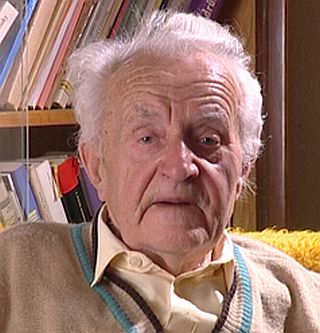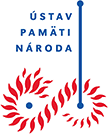Andrej Novák (1918 - 2005)

Biography
“There is only one thing I regret: we were even determined to sacrifice our lives, but nobody appreciates it.”
Andrej Novák was born on October 5, 1918, in the village of Abrahámovce in Bardejov district. Until the age of eight he was brought up by a foster family, but later he was returned back to his mother. He spent his childhood and early youth in hard living conditions and money he earned by having various part-time jobs was used to support his mother. Before the war he worked in the municipal office and in the municipal library. On January 10, 1940, he became an assistant in the military hospital at the Eastern Front in the Soviet Union. In 1943 he came back from the war and after liberation of Prešov he joined up the Czechoslovak Army. After the war he settled in Prešov. He married and he had two children – a son, Vladimír, and a daughter, Gabriela. In 1950 his brother Štefan introduced him Viktor Palkovič, an agent of the Western intelligence agency, and Andrej was asked to help him to hide Viktor. After almost a year, the State Security revealed the refuge. All the participants were arrested, investigated, sentenced and sent to prison. They were accused of anti-state activities and betrayal of working class. In 1951 Andrej Novák was sentenced to life imprisonment by the Regional Court in Košice, but after being granted amnesty in 1963, he was released. He spent twelve hard years in various jails. After his release he came back to his wife and started to work in a construction company Pozemné stavby in Prešov and afterwards he worked as an assistant driver. He died on October 9, 2005.
Harbouring of an Agent
“I think it was in 1950 when my brother, together with Gergeľ, brought a man called Palkovič who I later provided a shelter for. I had a big garden with a building where he was hidden. I provided food for him and he asked me to cooperate with him. I agreed and since I was a clerk and I had an access to information, I brought him some reports, which he later sent abroad, to Leipzig. And it lasted in this way for almost a year until it came out.”
Surprise - Apprehension
“When they caught me, it was a surprise, because I was at a soccer game. My wife was at home with our children. When I came to my house, it had already been besieged by agents. My wife was with our children, she held them in her arms and the State Security members occupied the whole house. When I came home, I was arrested. Later I heard that our children were dragged from my wife’s arms by the State Security members and taken away, purportedly somewhere to Humenné. One of the agents held my wife’s arms and the other took the children. In Humenné, there was some kind of institute for children. My wife was taken by the second car and I was taken by the third one.”
He Did Not Answer to Their Liking
“Well, how to say it. I talked to a prosecutor about my case for the last time before a trial. Before the trial I was called to the office for a cross-examination. I sat in the middle of the office surrounded by the State Security members and their chief asked me questions. I had to answer them. But when I didn’t answer to his liking, when I didn’t tell what they wanted to hear, I was beaten. I was hit in the head, in the ears; I was beaten until I lost consciousness. But meanwhile I was asked whether I wanted to shoot the Regional Chief of Security and the State Security Chief. And I answered: ‘I’ve been to Košice only once in my life when I was a little boy. I haven’t been there ever since. I don’t know Košice!’ ‘Shut up, we know everything and you have to say what we want to hear. Otherwise you will be hung and I will be watching your legs swaying in the air.’ I remember all his words literally. I said: ‘Even if you shoot me, I won’t say it, because it is not truth.’ But they wanted to force me to plead guilty to the crime.”
Execution of Palkovič
“When I was in Prchalov workroom, suddenly a jailer came to me and he brought me some clothes. But before I continue, I have to add something… Fučík, Cisár and Tunega were executed at the same time. Palkovič should have been executed simultaneously and I felt really sorry for him. And suddenly the jailer brought me some civilian clothes to be ironed, because some prisoner was due to be executed next day. When I looked at the clothes, I found out they belonged to Palkovič. I recognized them. It unnerved me and I started to shake. In the morning a turnkey told me that at 5 a.m. Palkovič had been taken from his cell and afterwards he had been executed.”
Christmas in a Dugout
“A dugout. Suddenly, without any explanation, prisoners had to dig a dugout. It was a hole in the ground approximately three metres long and two metres wide. At Christmas, on Christmas Eve, some of us were selected, especially those who were disliked by jailers, including me. We were sent into the dugout. It was overcrowded, approximately forty people were there. There was nothing, just a little door hole and the solid ground inside. We were given only some vessel to use it as a chamber pot. During three days we spent there, we lived only on hot water. It was Christmas. And the Chief Constable told us: ‘It’s for you to know that also here you may celebrate Christmas.’”
Mentally Disordered Cellmate
“When I was transported to the village of Valdice in Jičín district, I came to a downstairs corridor. There was an escort consisting of ten people. Afterwards we were divided into the cells and I was the only one left, so a jailer asked me: ‘And why are you here and how many years were you sentenced to?’ I told him: ‘I was sentenced to life imprisonment.’ And I was sent to a cell number 31 on the first floor. I was welcomed by an ex-military officer who stayed there because he had committed some political crime. He wore a black prison uniform, the one which had to be worn by all the prisoners who had attempted to flee from the prison. They had to wear it for easier recognisability among other prisoners. When I entered the cell, he told me: ‘Welcome, firstly I have to warn you.’ Since three prisoners lived in each cell, he said: ‘I have to warn you, a prison called Jaroš will be sleeping on the bed above yours. He works in an office in the store. When he was a child, he set fire to some ricks along with his friends. He is a young boy coming from Prague, but he is ill.’ When he uncovered his bolster, I saw a lot of blood. What the hell was going on? Moreover, he had a razorblade, a needle and some threads. There was some blood on the floor, too. So he explained it to me: ‘He suffers from some kind of mental illness. When he is afflicted with it, he has to cut himself… Usually he is pale, but when he cuts himself and he smudges his blood here, then he blushes.’”
The Story of Gabriela Fecková
“My name is Gabriela Fecková and I am Mr Novák’s daughter. I know only from my mother’s telling that I was only one year old and my brother was two years old when we were dragged from our mother’s arms violently and taken to an orphanage in Humenné. My brother suffered from some health problems there, because he was older than me and he understood the situation. He missed our mother a lot and, as a result, he cried a lot. But I was younger and I didn’t understand what was going on. Our grandfather wanted to take us from there and to bring us up, but they didn’t allow him to do so. They wanted to bring us up in the way they wanted, differently from how was our father brought up.”
Childhood and Adulthood of Andrej Novák’s Children
“Actually, our life was quite hard, because when we were asked for our father’s job, we answered he was in prison and these were really difficult times. It was quite depressing and, consequently, we were not interested in studying anymore, because even if we had been interested in it, we would not have been allowed to study either. For example, my son wanted to become a policeman, so he enrolled when there was police recruitment. But when he told a recruiting policeman that his grandfather was a political prisoner, he told him: ‘You better don’t even try to join police, because it is impossible for you to become a policeman.’”
The story and videoclips of this witness were put together and published thanks to the financial support of EU within the programme Europe for Citizens – Active European Remembrance.


Updated at: 27.02.2024
Print Tweet